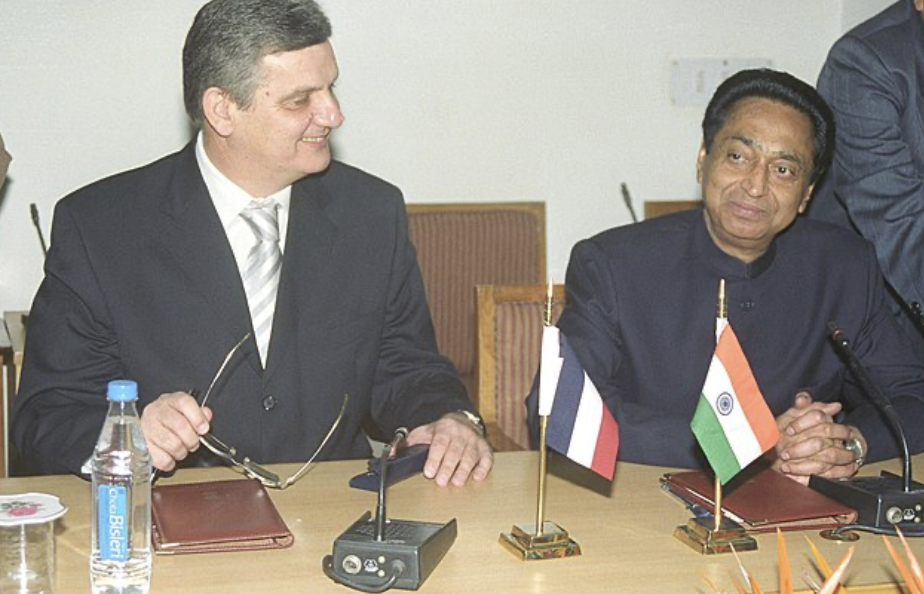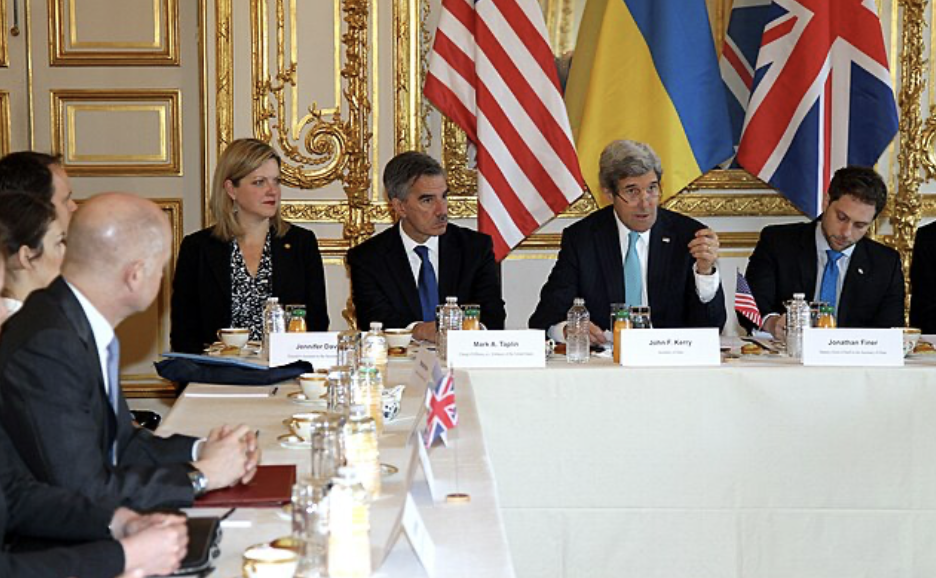The Compass
The George Washington University’s
Undergraduate International Affairs Blog
Silence Is Not Strategy: India’s Multipolar Problem
This article specifically analyzes how India’s long-standing strategy of nonalignment has become increasingly ineffective in today’s multipolar global order. Where India once leveraged geopolitical balancing to maintain its autonomy and influence, its continued strategic hesitation today erodes its influence and foreign trust in its leadership of the Global South. By analyzing India’s geopolitical stance towards the United States, Russia, China and other emerging global powers, this piece argues that ambiguity is no longer an asset for India and the nation must instead adopt a clearer geopolitical identity to retain its global influence.
The Politics of Eurovision
On December 4, 2025, Israel was cleared to compete in Eurovision. A few hours later, Ireland, Spain, Slovenia, and the Netherlands pulled out of the competition. On December 10, 2025, Iceland joined the boycott. This ongoing controversy demonstrates the inherently political nature of Eurovision. Politics have long been a part of Eurovision and will remain a part of the competition for the foreseeable future.
Sudan: On the Brink
Sudan is currently going through a civil war, fueled by a power struggle between the SAF and RSF. This has created a severe humanitarian crisis with millions killed, displaced, or starved. Failed peace efforts and international neglect worsen the issue while civil society fights for human rights amongst the instability.
Why NATO’s 5% Defense Target Is a Necessary Sacrifice for Europe
Early last month, staff editor Sreejani Sinha published a piece in The Compass with a bold line of argument: NATO’s collective decision in June 2025 to increase national defense spending from a 2% minimum to 5% represented a shift to a “wartime mindset,” which could deter war, but at the cost of militarizing Europe and fueling a dangerous rift between Western citizens and their public institutions. However, Sinha’s policy analysis is flawed in logic, inaccurately showcasing these challenges as (a.) significantly influenced by a 3% increase in defense spending and (b.) occurring in what amounts to a geopolitical vacuum.
A Legacy of Failure: The Budapest Memorandum, a Generation On
Over 30 years since its signing, the Budapest Memorandum achieved its immediate goal of curbing nuclear proliferation in the aftermath of the collapse of the Soviet Union. But the agreement’s actual provisions for Ukraine's benefit – not to mention the Memorandum's greater objective of a peaceful, stable Europe – lie in tatters because of Moscow's revanchist aggression and Washington's reckless diplomacy.
The 25th Anniversary of Women, Peace, and Security: The Light that Needs to Burn Brighter
This October 2025 marked the 25th anniversary of the Women, Peace, and Security (WPS) agenda, a framework endorsed by UNSCR 1325. This resolution by the UN Security Council marked groundbreaking advancement for the international commitment towards women’s rights. During the United Nations’ annual WPS debate, speakers discussed the empowerment of women, but also the critical danger and conflict that women around the world are facing. During a time of various humanitarian conflicts and conservative leaders, the call for women to be represented in all facets of peacemaking is necessary for change.
The Georgian Dream is a Democratic Nightmare
After the local elections on October 4th, the Georgian Dream has proven itself to be a democratic nightmare. Through vote buying, intimidation, and likely Russian interference, the democratic experiment in Georgia is likely over or at the very least coming to a close. When looked in comparison to the extremely reformist President Mikheil Saakashvili, Prime Minister Irakli Kobakhidze's claims of reform fall flat as his vote buying, intimidation, and now mass arrests of opposition leaders and protestors shows that his party, the Georgian Dream, cares more about power rather than membership in the European Union, the strength of Georgian democracy, or Georgian civil society.
Why NATO’s 5% Defense Target Is a Dangerous Shift
This is an opinion piece that argues that NATO’s new 5% defense spending goal by 2035 is a shift from peacekeeping to increased militarization. While some aspects of the new defense spending goal are justified by global instability, there are still some concerns. For instance, the new spending goals risks economic strain, public unhappiness, and a potential arms race. The article states security should come from diplomacy and balance
France’s National Crisis
On October 6, 2025, French Prime Minister Sébastien Lecornu resigned less than 24 hours after forming a government and less than a month after his appointment. This marks the shortest government since the establishment of the Fifth Republic. Lecornu's resignation follows an emerging trend in French Politics, in which the government is frequently collapsing. This is sending France into a national crisis while undermining the legitimacy of French President Emmanuel Macron.
The Stories, Struggles, and Structures that Drive Resistance
Rebellion has long shaped human societies. Throughout history, individuals and groups have opposed institutions, regimes, leaders, and each other. The underlying motivations for rebellion and the factors that unite individuals in resistance remain subjects of scholarly inquiry. This article examines the primary motivations for rebellion and presents several prominent historical examples. Furthermore, it underscores the significance of understanding rebellion for contemporary global stability.
The Liberal Democratic Party’s Crisis of Long-Term Survival
The Japanese Liberal Democratic Party is in crisis. After the resignation of Ishiba, the LDP must analyze its past in order to understand how best to move forward and reform. Without factions, internal divisions have increased while ideological consistency has decreased. On top of this, control over junior lawmakers through the distribution of funds is nearly non existent, meaning that a new system must be created as the old was implicated in a financial scandal. Without structural reforms that please both junior and senior lawmakers, the LDP will eventually fall.
Japan Has Decided: Populism and Tariffs; Rice and Russia
On July 20th, the people of Japan decided to keep the Liberal Democratic Party (LDP) in power albeit with populist reservations. After a series of scandals, the LDP was in dire straits, but managed to keep a plurality of seats alongside its coalition partner the Komeito. Populist parties such as the Democratic Party for the People (DPP) and the Sanseito made strides in the polls while traditional opposition parties such as the Japanese Communist Party (JCP) and the Constitutional Democratic Party (CDP) stalled. The Sanseito however was mired by a scandal just days before the election, having a candidate participate in an interview with Russian-owned media outlet Sputnik without party authorization. Russia was also shown to have been interfering with the election through social media as well. How Japan navigates these issues will ultimately determine the future of the LDP, CDP, JCP, and other parties' futures.
When Institutions Falter, Relationships Rule
The U.S. under Donald Trump has mainstreamed a CEO-style, highly transactional diplomacy in the Americas: define the problem plainly, set a concrete ask, trade quick concessions, move on. In a global age of institutional fatigue, personal ties are the glue that keeps policy moving – the United States’ CEO-style approach to diplomacy can find a home in Latin America.
The Promises and Perils of Iraq's Development Road
Iraq's Development Road aims to transform the Middle Eastern country into a crucial trade corridor on the Eurasian continent, reducing dependence on oil by the country. Stretching from the Gulf of Persia to Turkey, this megaproject promises regional connectivity and economic/job stimulation for many. Despite this, political fragmentation and chronic corruption threaten the success of such an ambitious initiative. This brief examine both the project's economic promises and downfalls, arguing that without correction from within the Development Road will never materialize.
U.S.-Mexico Customs Agency: A Necessity?
North America’s trade arteries are clogged, not with goods but with inefficiency, duplication, and gaps in enforcement that smugglers exploit every day. The United States and Mexico run separate customs regimes, each with its own bureaucracy, inspection standards, and data systems. That fragmentation slows legitimate trade and leaves exploitable cracks in border security. In a continent where contraband can move from a remote checkpoint to a major U.S. city in hours, the cost of those cracks is measured in both money and lives. Recent ad-hoc U.S. and Mexican coordination on border security policies have proven to slow down fentanyl trade. However, coordination under two siloed customs systems is slow, inconsistent, and reactive. This article will present a brief case for a single, binational joint customs agency.
China is Still Not an Enemy
"China is not an enemy". That was the title of an open letter published in the Washington Post in 2019. This article seeks to reinforce this idea in the new Trump administration, especially with its fearmongering and hawkishness towards China. It also provides more insight into the environment surrounding the discourse on China and how other actors, specifically think tanks, are amplifying this hawkishness and fearmongering that is unnecessary, unwarranted, and even dangerous.
Reducing Child Marriage in India
Child marriage is one of the world’s most pressing issues for young children today. According to the United Nations Children Fund (UNICEF), an estimated 640 million girls worldwide were married in childhood. India is home to the largest percentage of child brides in the world. India’s percentage of child brides implies a lack of resources for young girls to develop economically or socially in their country. Implementing stronger emphasis on education for young women can potentially shift cultural norms in communities.
Security in Latin America: The Bukele Strategy
The article is more of an opinion piece that reflects on Bukele's government and how other countries in Latin America (such as Ecuador) are inspired by his security measures.
India’s Northern Powerhouse: Uttar Pradesh’s Green Energy Transformation.
India, long recognized for its demographic and developmental complexities, has made significant strides toward a more sustainable future despite post-colonial challenges and rapid industrialization. This article highlights the particular case of Uttar Pradesh, a northern state of India. Historically, this state has been known for its low levels of development, particularly in comparison to some states in the South. However, over the past few years, UP has made commendable progress in sustainability through its organizational and employment policies, as well as social perspectives.
The Erosion of US Soft Power: The Strategic Implications of US Global Disengagement
Since World War 2, US leadership has shaped global cooperation through soft power, trade, and military alliances. Recent policy shifts, such as tariffs, reduced international engagement, and the closure of essential diplomatic institutions, have weakened that influence. Allies are reevaluating their reliance on US defense and economic relations, turning to regional alternatives. These developments reflect a possible transition to a multipolar world order and a diminishment of the US in global standing if these actions continue.






















